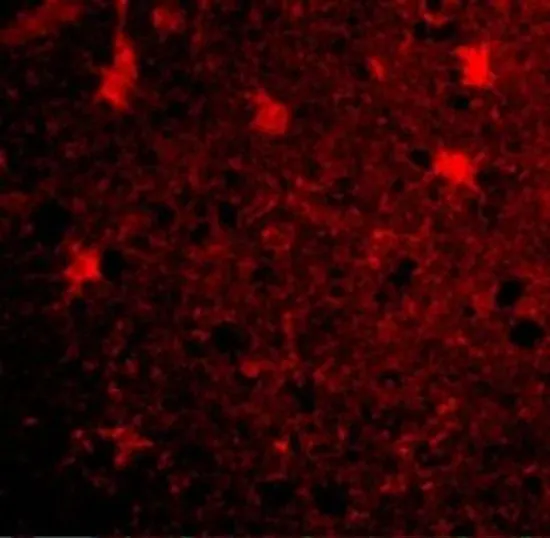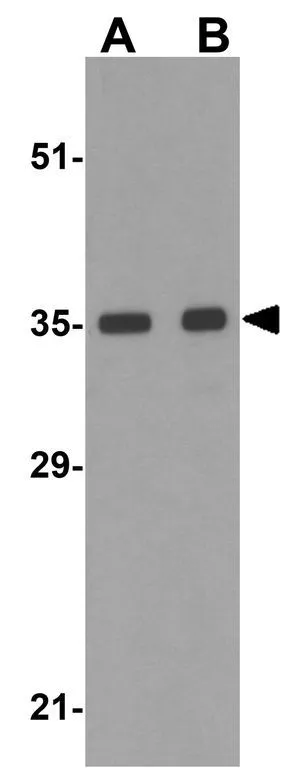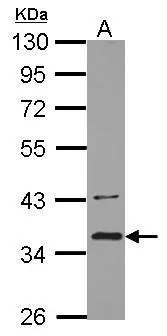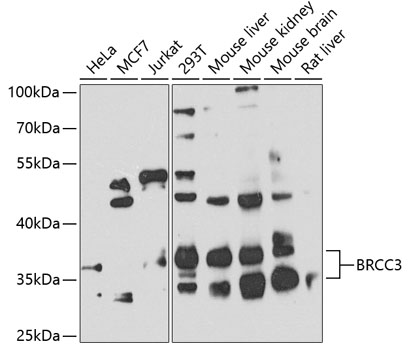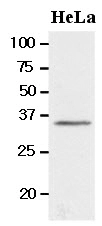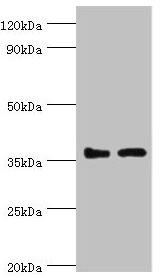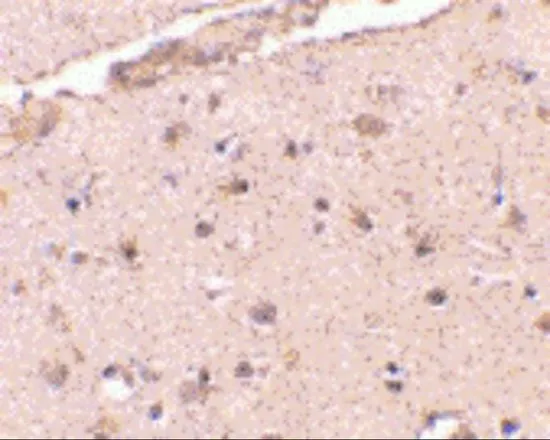
IHC-P analysis of human brain tissue using GTX31765 BRCC36 antibody. Working concentration : 2.5 μg/ml
BRCC36 antibody
GTX31765
ApplicationsWestern Blot, ELISA, ImmunoHistoChemistry, ImmunoHistoChemistry Paraffin
Product group Antibodies
ReactivityHuman, Mouse, Rat
TargetBRCC3
Overview
- SupplierGeneTex
- Product NameBRCC36 antibody
- Delivery Days Customer9
- Application Supplier NoteWB: 0.5 - 2 microg/mL. IHC-P: 2.5 microg/mL. *Optimal dilutions/concentrations should be determined by the researcher.Not tested in other applications.
- ApplicationsWestern Blot, ELISA, ImmunoHistoChemistry, ImmunoHistoChemistry Paraffin
- CertificationResearch Use Only
- ClonalityPolyclonal
- Concentration1 mg/ml
- ConjugateUnconjugated
- Gene ID79184
- Target nameBRCC3
- Target descriptionBRCA1/BRCA2-containing complex subunit 3
- Target synonymsBRCC36, C6.1A, CXorf53, lys-63-specific deubiquitinase BRCC36, BRCA1-A complex subunit BRCC36, BRCA1/BRCA2-containing complex subunit 36, BRISC complex subunit BRCC36
- HostRabbit
- IsotypeIgG
- Protein IDP46736
- Protein NameLys-63-specific deubiquitinase BRCC36
- Scientific DescriptionThis gene encodes a subunit of the BRCA1-BRCA2-containing complex (BRCC), which is an E3 ubiquitin ligase. This complex plays a role in the DNA damage response, where it is responsible for the stable accumulation of BRCA1 at DNA break sites. The component encoded by this gene can specifically cleave Lys 63-linked polyubiquitin chains, and it regulates the abundance of these polyubiquitin chains in chromatin. The loss of this gene results in abnormal angiogenesis and is associated with syndromic moyamoya, a cerebrovascular angiopathy. Alternative splicing results in multiple transcript variants. A related pseudogene has been identified on chromosome 5. [provided by RefSeq, Jun 2011]
- ReactivityHuman, Mouse, Rat
- Storage Instruction2°C to 8°C
- UNSPSC12352203
References
- Fang P, Madden JA, Neums L, et al. Olaparib-induced Adaptive Response Is Disrupted by FOXM1 Targeting that Enhances Sensitivity to PARP Inhibition. Mol Cancer Res. 2018,16(6):961-973. doi: 10.1158/1541-7786.MCR-17-0607Read this paper

